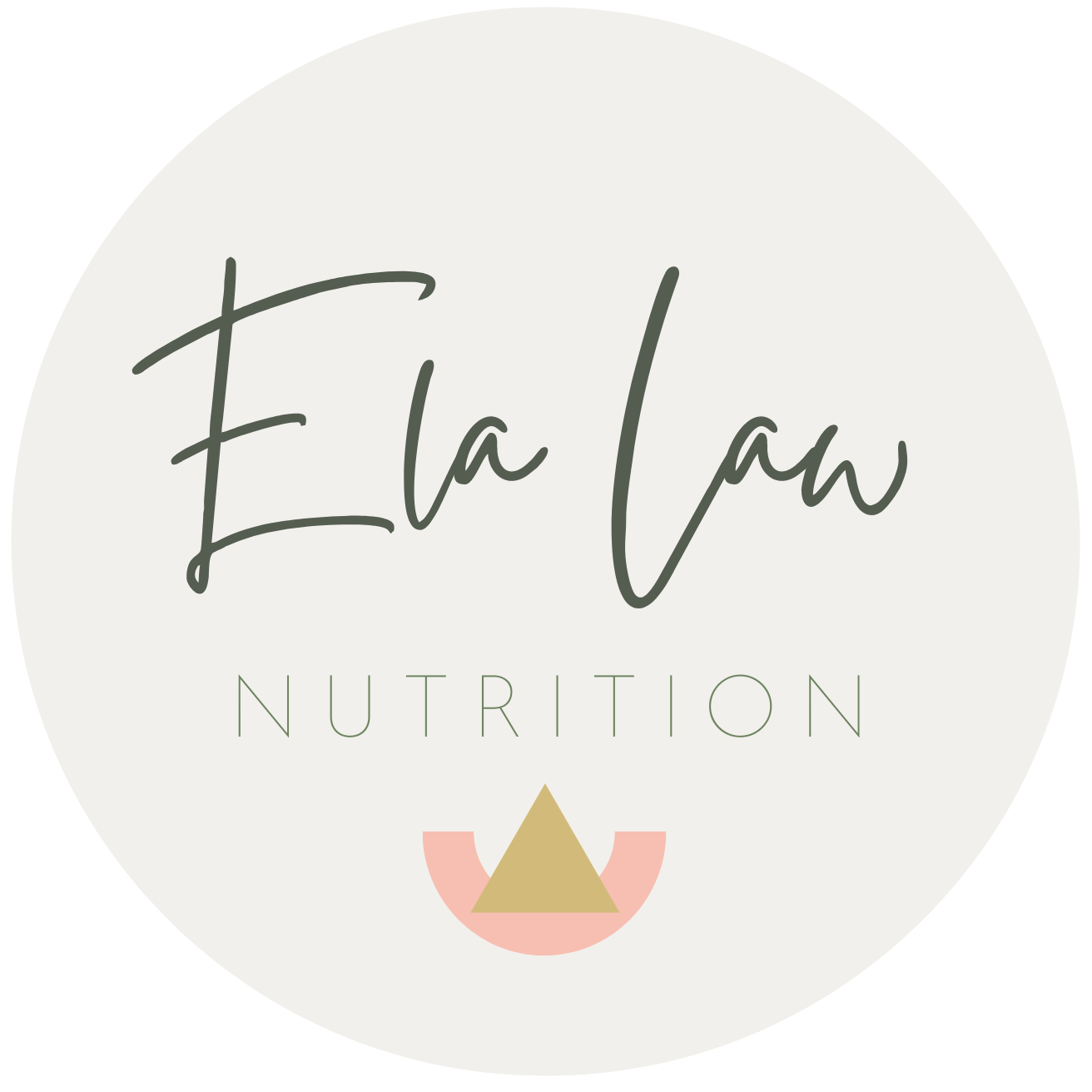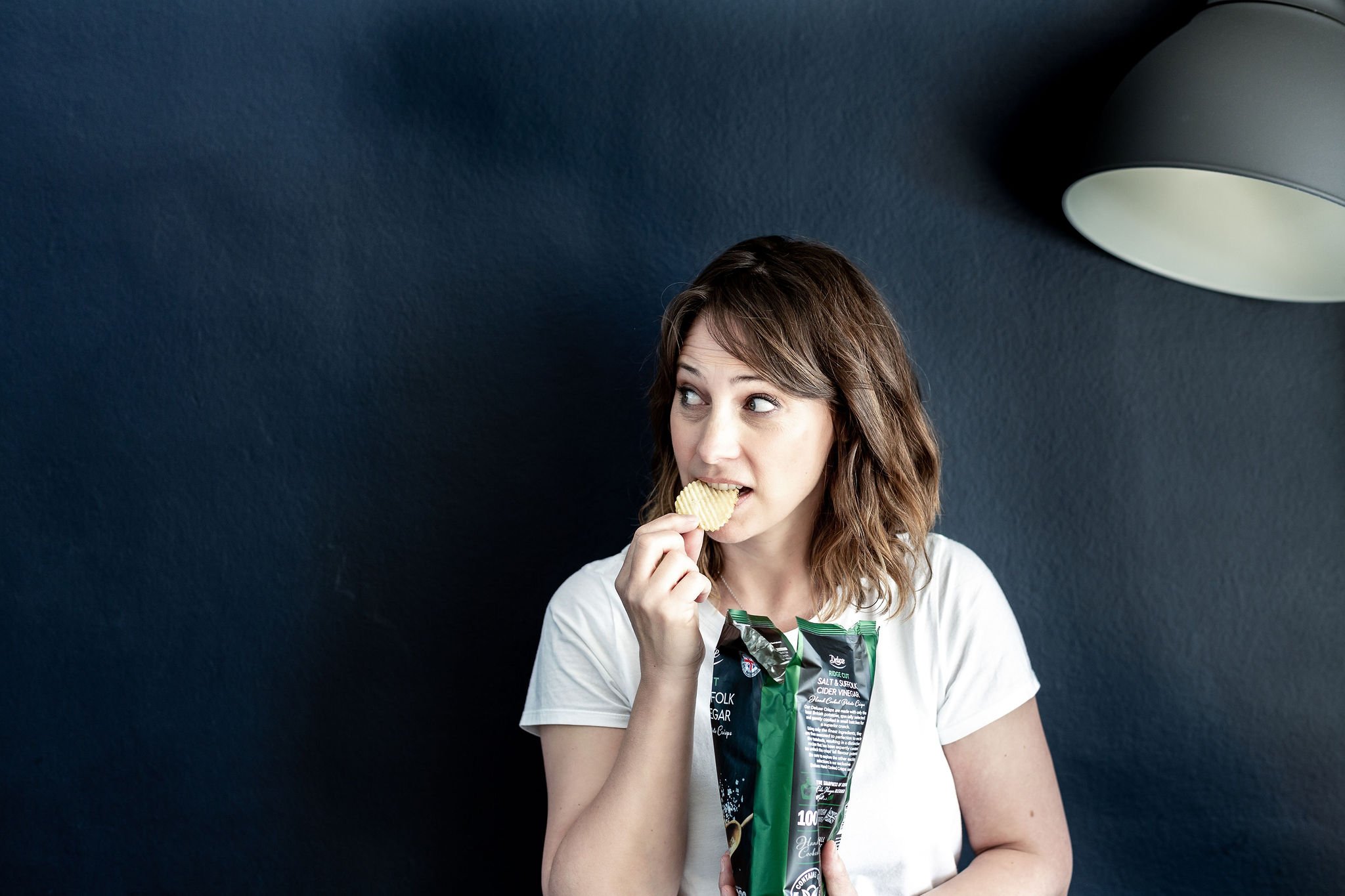I used to say: don’t buy it and you won’t eat it – But is that really necessary for eating well?
It’s a very simplistic statement: if you don’t have it at home, you won’t be tempted to eat it. Kind of makes sense, but I cringe now when I think back about how many people I have told this because what it conveys is that you don’t trust yourself being around food. You feel that certain foods have so much power over you that you would just give in and eat it all if you had it in your cupboard.
No food should have that sort of power over us.
I have learnt about the biological reasons why restriction almost always leads to cravings and bingeing. Our body has a powerful drive to find food when are met with a famine – and it can’t distinguish between self-inflicted famine (dieting/food restriction) and a real famine (food scarcity). Food is essential for life and to eat is self-preservation. Therefore, the body will do whatever it takes to get energy and nourishment.
This biological mechanism will be sending our hormones and neurotransmitters into overdrive, ramping up our cravings and giving us a feeling of ‘out-of control eating’ when we do finally get some food. By restricting food we are playing right into this mechanism’s purpose.
Looking at it from a psychologically point of view, believing that you can’t trust yourself around food can have a hugely negative impact on your self-esteem and your self-image. Eating foods that you don’t usually allow yourself to eat will likely make you feel bad about yourself and think that you are lacking in willpower and self-control. And craving a food you can’t have will make you feel sad, as well as deprived of something pleasant. All of this will add to the amount of stress you experience. And we all know how detrimental stress can be to our health.
So rather than saying don’t buy it and you won’t eat it, what is the alternative for eating well?
It may sound strange and scary, but this is what works:
buying a lot of it and having it at home and ready for you whenever you fancy it.
If that scares the living daylight out of you, don’t worry. It’s a normal reaction to something that is out of our comfort zone and something we haven’t allowed ourselves to do for so long. You will likely think that if you had all that forbidden food at home you wouldn’t stop eating it. You might even feel you are addicted to it.
Let me explain why this is not the case:
1) Food addiction is not really a thing. Addiction-like behaviours around food can certainly happen, and eating can tap into the same pleasure centres as drugs do. But ‘addictive’ eating behaviours are due to that biological drive I mentioned earlier: to eat as much as we can after restriction.
2) Imagine you had your favourite ‘forbidden’ food – for example, let’s just say a double choc chip cookie – for breakfast, snack, lunch and dinner. And then again the next day, and the day after. I would bet you any money that even the biggest double choc chip cookie fan would grow bored of this; the cookie wouldn’t taste the same after a few days, and it also wouldn’t have the same appeal anymore.
This example shows the ‘habituation effect’. When we get used to something, it becomes more ordinary and less special, therefore losing its ‘special’ status. We end up in a mindset where we can take it or leave it. We may still love it, or we might decide that we actually don’t like it that much. But the important thing is that we are now used to it being around. It’s a way of taking food off its pedestal, making it neutral, rather than giving it more power and desirability than it deserves. Have a look at my food neutrality blog for more on this topic!.
So, instead of saying ‘don’t buy it and you won’t eat it’, which I said in the past with best intentions but a lot of naivety, I would now say: ‘buy it and you may or may not eat it, and when you do eat it, enjoy it!’ Eating well is about more than calling foods ‘bad’ and cutting them out. It is way more helpful for our relationship with food to make peace with it rather than fight it all the time. And that to me is eating well and feeling good about it!
So go ahead, give yourself permission! (and if you are worried about this, get in touch to book a 121 consultation to work through this together!)
Ela x


